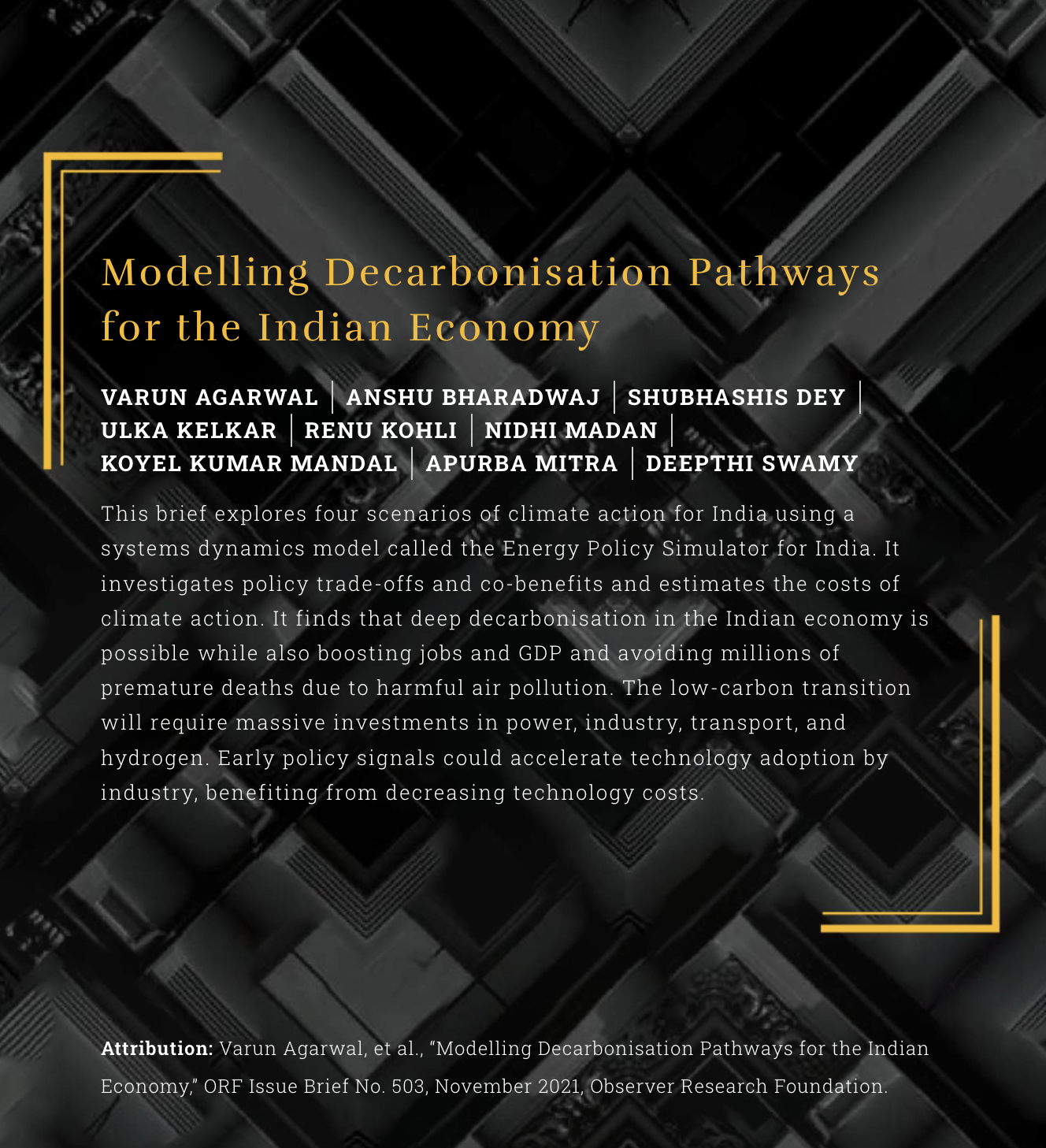 For developing countries like India, strong climate action can appear to be a trade-off—one that may come at the expense of robust economic growth. The question that India faces today is this: Will it compromise economic development and job creation if it chooses a low-carbon pathway, or can actions to reduce emissions in different sectors be the foundation of a stronger economy and improved human well-being?
For developing countries like India, strong climate action can appear to be a trade-off—one that may come at the expense of robust economic growth. The question that India faces today is this: Will it compromise economic development and job creation if it chooses a low-carbon pathway, or can actions to reduce emissions in different sectors be the foundation of a stronger economy and improved human well-being?
India’s long-term development pathway cannot directly borrow the from the approaches of other countries. For countries that are already industrialised, tackling the challenge of climate change requires decarbonising the existing infrastructure and moderating high consumption. For India, on the other hand, it means creating new green energy infrastructure that meets the needs of its population without locking into fossil-fuel path dependence.
As India explores a net zero emissions future, this issue brief explores four scenarios of climate action for India using a systems dynamics model called the Energy Policy Simulator for India. It investigates policy trade-offs and co-benefits and estimates the costs of climate action. It finds that deep decarbonisation in the Indian economy is possible while also boosting jobs and GDP and avoiding millions of premature deaths due to harmful air pollution. The low-carbon transition will require massive investments in power, industry, transport, and hydrogen. Early policy signals could accelerate technology adoption by industry, benefiting from decreasing technology costs.
Download the issue brief
The issue brief has been jointly authored jointly by Shakti Sustainable Energy Foundation and World Resources Institute (India). It is part of a research compendium published by the Observer Research Foundation (ORF) titled Shaping Our Green Future: Pathways and Policies for a Net-Zero Transformation , which also features perspectives from The Fletcher Business School, Climate Policy Lab, MacArthur Foundation, National Investment and Infrastructure Fund, International Forum for Environment, Sustainability & Technology and other institutions. Released by ORF at at the Glasgow Climate Change Conference in 2021 side event, this was a timely publication, coming in just after India announced its net zero by 2070 target.
Authors
Varun Agarwal, Senior Program Associate – Climate, World Resources Institute India
Anshu Bharadwaj, Chief Executive Officer, Shakti Sustainable Energy Foundation
Shubhashis Dey, Director – Climate Policy, Shakti Sustainable Energy Foundation
Ulka Kelkar, Program Director – Climate, World Resources Institute India
Renu Kohli, Independent economist, previously with the Indian Council for Research on International Economic Relations, International Monetary Fund, and Reserve Bank of India
Nidhi Madan, Senior Programme Manager – Climate Policy, Shakti Sustainable Energy Foundation
Koyel Kumar Mandal, Chief of Programmes, Shakti Sustainable Energy Foundation
Apurba Mitra, Program Head – Climate policy, World Resources Institute India
Deepthi Swamy, Consultant, Climate program, World Resources Institute India
